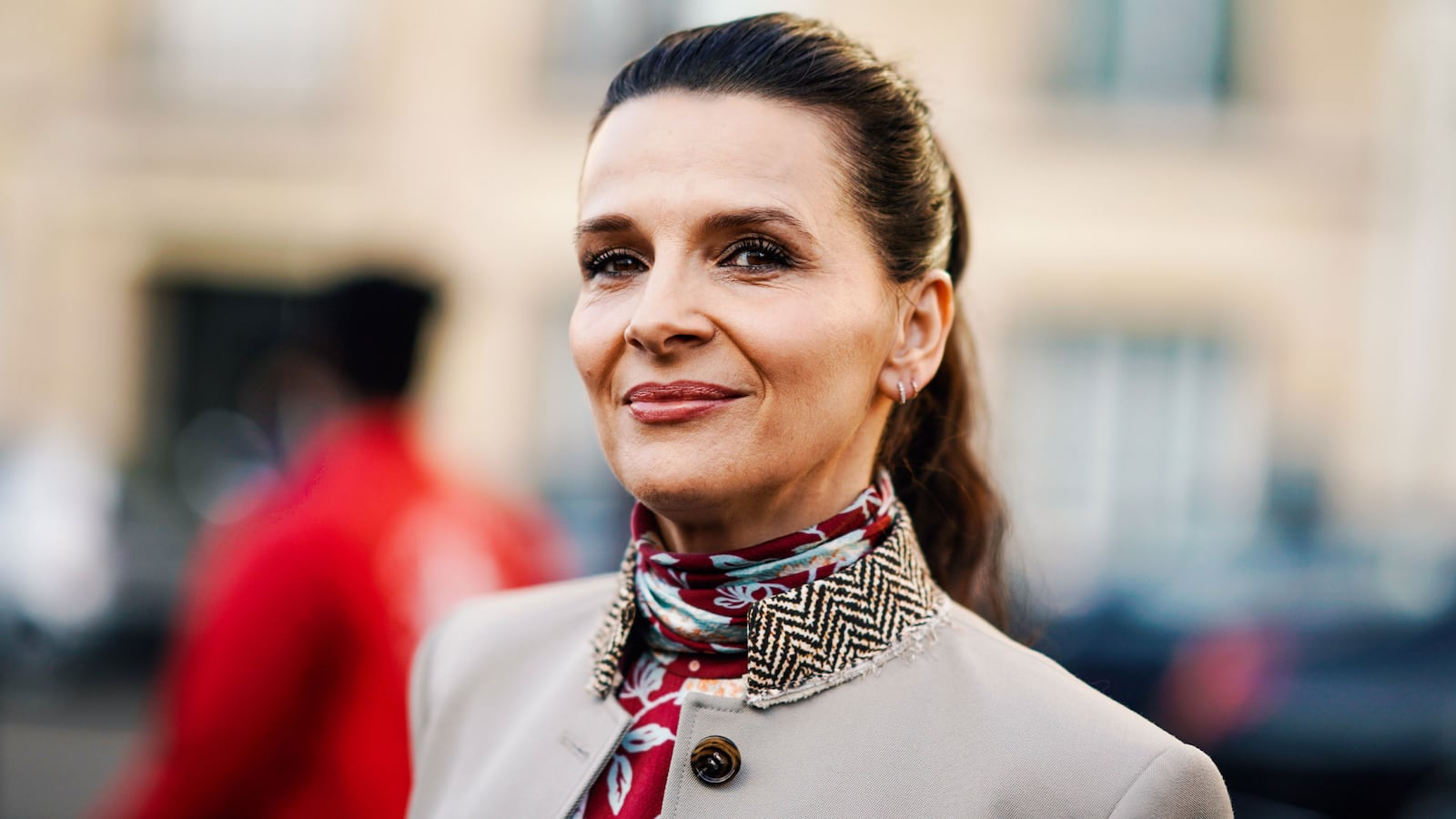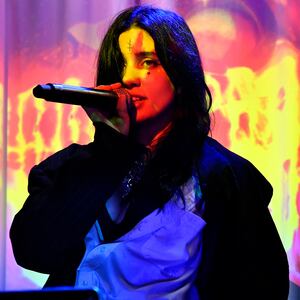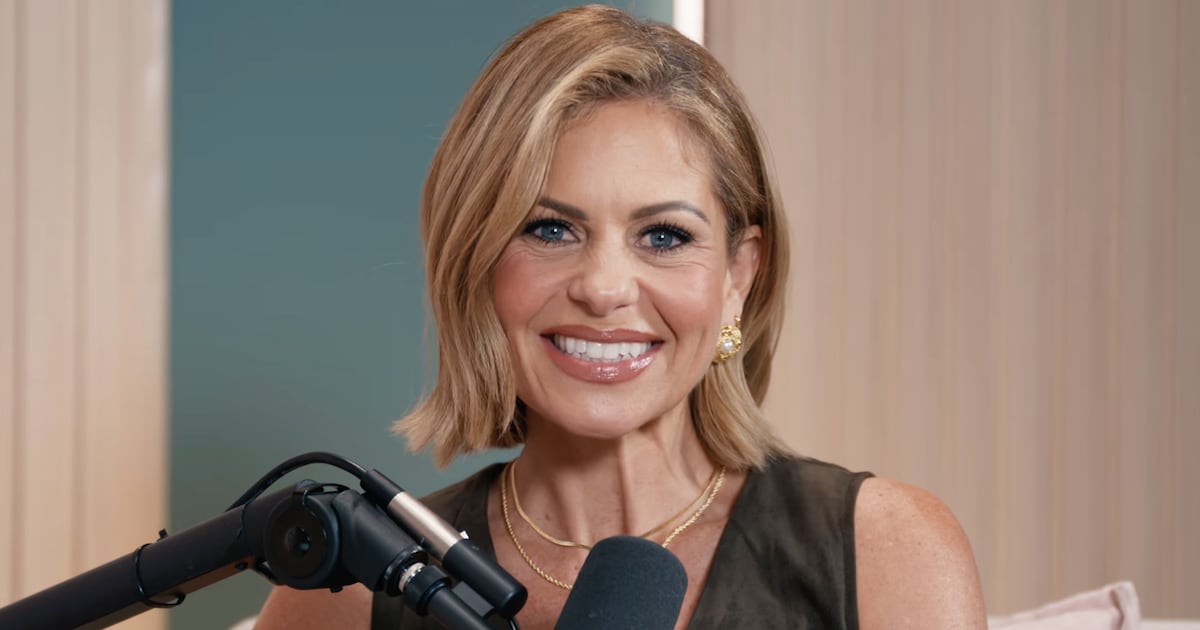There’s no more talented or accomplished actor working today, in any corner of the globe, than Juliette Binoche, who over the course of her four-decade career has solidified herself as a versatile artist capable of thriving in any genre setting in both her native France and abroad.
Binoche’s peerless résumé is populated by numerous gems and accolades—highlighted by a Best Supporting Actress Oscar for 1996’s The English Patient—as well as a “who’s who” list of directorial collaborators, including (but not limited to) Abbas Kiarostami, Krzysztof Kieślowski, Jean-Luc Godard, Hirokazu Kore-eda, Olivier Assayas, Michael Haneke, Anthony Minghella, Louis Malle, Leos Carax, Bruno Dumont, Chantal Akerman, and David Cronenberg. Nonetheless, at age 58, Binoche refuses to rest on her laurels, continually proving to be a vibrant and multifaceted presence who takes risks in diverse ventures that challenge, confront, and thrill.
That’s demonstrated yet again by Both Sides of the Blade (in theaters July 8), her third recent film with French auteur Claire Denis following 2017’s Let the Sunshine In and 2018’s High Life (with Robert Pattinson). A fraught drama about a couple, Sara (Binoche) and Jean (Vincent Lindon), whose marriage is put to the test when Sara’s former lover François (Grégoire Colin) reappears and attempts to rekindle their romance, it’s a raw, intimate look at the interplay of love and desire, brought to life by Denis’s typically sensuous direction and a Binoche performance that’s as nuanced as it is unguarded, capturing Sara’s painful inner conflict and torment as she tries to navigate a perilous emotional dynamic.
It’s a bracing tour-de-force that’s par for the Binoche course, and it comes on the heels of the actress’ stellar turn in HBO Max’s based-on-real-events The Staircase as Sophie Brunet, the documentary editor who fell in love with accused wife-killer Michael Peterson. Together, those two projects have already made 2022 a year to remember for Binoche—and, consequently, a perfect time to speak with her about her rewarding rapport with Denis, working in multiple countries (and languages), and what would compel her to embark on a big-screen superhero endeavor.
This is your third film with Claire Denis. What brought you back to the director?
I said yes to Claire before I read the script because I liked working with her on the last two films. And Christine Angot, who was writing the screenplay, I like very much as well. So, I thought, that’s exciting. It was supposed to be a quick film to do together, and I like this kind of express film, like an express train—you just take the train and you know you’re going to be on this journey together.
I always like the way Claire is on set, because she’s not anticipating how it’s going to be. She’s not a controller of how it’s going to be. But she has this intense presence in making the film while we’re doing it. I love that process—and seeing her in that process. Also, she leaves freedom for the actors, and there’s a genuine trust she has that I really appreciate. She’s sensitive, and doesn’t always go with the obvious, and likes taking risks. That’s exciting for an actor. There’s mutual respect as well, so it’s appreciated to have that relationship. But on this one, it was tough. The subject matter was so tough, because those conflicts are so raw. But I like Bergman’s films, so I thought: that’s my Bergman moment!
Denis’ films are so naturally graceful that it often feels like she's discovering great moments, rather than composing them. Was Both Sides of the Blade the type of shoot where there’s exploration on-set?
It was totally on the script. Vincent was improvising.

Vincent Lindon and Juliette Binoche in Both Sides of the Blade.
IFC FilmsIs that tough?
That was difficult for me because I never knew where he was ending. But I think that’s what made him comfortable—to be in control of his own text. Because the screenwriter, Christine Angot, is such a writer, I have this respect for what she wrote. Sometimes it was difficult, because I never knew where he was ending. But I think Claire liked the sort of different worlds that we had to confront. There was no rehearsal. Usually, we go straight into shooting without rehearsing, and that’s an amazing job for the first assistant director, because they have to be so good at pointing [the camera]. But that’s the deal of this shooting. She doesn’t like rehearsing, and we were fine with just throwing ourselves into it.
Given that you were sticking to the script and Vincent was improvising, as well as the lack of rehearsals, how did you develop the intimate chemistry you share with Vincent?
I was hoping he was respecting my lines, and that he was not cutting me off sometimes [laughs]. I remember working with Ethan Hawke, we did [Hirokazu] Kore-eda’s film [2019’s The Truth] together, and I’m a great fan of Philip Seymour Hoffman—he’s my hero. I said to Ethan, what did you learn from him? I want to know what you learned from Philip. He said to me that Philip got pissed off with him because Ethan loves improvising. Ethan knows how to give a written text performance, and he learns it all, but at the time he did this film with Sidney Lumet [2007’s Before the Devil Knows You’re Dead], he improvised, and I think Ethan asked Philip, tell me something about acting. If I remember well what Ethan told me, Philip’s answer was, “Learn your fucking lines! And at least learn the last line so I know when you’ve finished.”
My relationship with Vincent didn’t allow me to tell him that! [laughs] I wish he was following a little more, but that’s his way of working. The funny thing is, he said at the beginning [of production], is it OK if I change a little comma or word here or there? And then actually, it’s totally different. But Claire liked that. I think she wanted to create that kind of relationship as well.
You said that you signed onto Both Sides of the Blade without having read the script. Considering that you’ve partnered with so many illustrious filmmakers, do you normally choose projects based on the director?
No, I don’t have a recipe. It depends on the years, it depends on the directors, it depends on my life. There’s not one way of choosing; there’s many ways. Sometimes I’ve said no to amazing directors because, whether it was in-between two projects and I was exhausted, or whether I was… I don’t have a recipe for that. This one I knew I just wanted to jump in again with Claire. That’s all I knew.
Are there any other directors with whom you’d still like to work?
I think life’s eye is bigger than mine, and I trust that the energies meet when it needs to be. But you’ve got to be aware, you’ve got to do your work, I’ve got to read my scripts. But I have this trust that life does it for you as well.
Both Sides of the Blade and Let the Sunshine In both investigate female desire, especially in middle age. Is it refreshing to find scripts that deal with those sorts of topics, which aren’t often addressed by contemporary mainstream film?
I don’t care. It wasn’t about that. There are many ways to love, and no, I’m not thinking that way. I don’t care [laughs]. I’m happy to play a lover, I’m happy to play a nun, I’m happy to play a mother, I’m happy to soon play a grandmother. I’m not frightened of it, is what I mean. Because it’s all about exploring what it is: “and if, and if, and if.” Human conditions are so multiple and immense that there’s always something interesting, no matter the circumstance.
Is that why you still enjoy moving between French and English-language cinema?
I feel lucky, because very early on, I loved the English language, and I knew it was going to open my life. I didn’t want to stay stuck in one place. I was aware that I really needed to improve my English in order to work—and life gave it to me! Doing The Unbearable Lightness of Being and then The English Patient and other films in-between and after, it expanded my possibilities and opened, also, my possible work with other countries, in Japan and elsewhere.
You were in Godzilla and Ghost in the Shell, but you haven’t tackled any other blockbuster-y event films. Do those appeal to you, generally speaking?
I’d had the possibilities before, and I chose instead to go with scripts that were really moving my heart. That’s really why I chose the films I did. When I did Godzilla, where I died three minutes after the film started, I received a wonderful letter from the director, and it touched me, and that’s why I got interested in it. The same with Ghost in the Shell. Actually, I said no two times to it, because I didn’t like the role. But they worked so much on the role that it touched me and I felt like doing it.
The great thing, to be an actor, is to be free in choosing. And you’re not always free. [Sometimes] you feel like you want to keep up in order to maintain whatever you need to maintain. I don’t feel that I need to maintain anything, and that’s why I can do a first film or different films and take risks, not knowing how it’s going to end up. The freedom really makes your life more interesting, in a way.

Juliette Binoche in The Staircase.
HBO MaxSo, you’d be open to doing a superhero movie, if Marvel or DC called?
Yes, if it interests me. Because there are interesting stories in it. Sometimes it’s just that, because they want it to be so commercial, they go a little narrow-minded in a way [that makes sure viewers leave with] a good feeling at the end of the film, or a simplification of what human beings are going through. Sometimes it wants to simplify, because producers think that otherwise people are going to feel that they don’t understand. The purpose becomes about numbers and success more than the film itself and what the meaning of it is. And I believe in the meaning that’s going to transform people. It’s alright that you don’t understand everything. Maybe you can see it again! Or discuss things with others.
I loved The Staircase, in which you play documentary editor (and Michael Peterson girlfriend) Sophie Brunet. Did you reach out to Sophie before taking on the part?
Yes, before I studied the TV show, I saw her and spent a lot of time with her. I was doing an interview and I had to edit it, so I asked her if she could edit it with me. We worked together for eight days, and it was wonderful because I got to know her in the work as well as in privacy.
Were you surprised at Michael Peterson’s negative reaction to The Staircase’s portrayal of himself and Sophie?
No, I’m not surprised, because it’s so hard to be seen when it’s your own life. If there was a film about my life, I’m sure I’d have things to say! [laughs] And especially knowing what he’s been through. But the TV series is a reflection on what is true and what is not true, and is there a truth?
Were you a big true crime fan before The Staircase?
Not really, and I work quite a lot, so I don’t have a lot of time to spend in front of a screen. But I have to say that when I watched Jean-Xavier de Lestrade’s documentary, I could not stop watching it. It’s like a drug—you finish one episode, and you want to see the second one, the third one, etc. When I watched it, I had COVID, so it was the easiest thing. I could spend five hours watching it. It’s like a drug—you get addicted.







